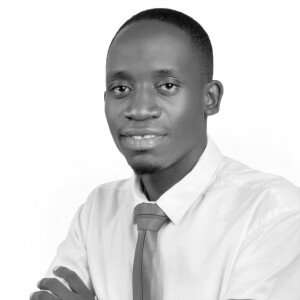
Project: Lawuna
The goal of this project is to establish a freshwater contaminant monitoring system and empower Ugandan communities with rich, open environmental data.
Real-time monitoring of freshwater pollutants

The goal of this project is to establish a freshwater contaminant monitoring system and empower Ugandan communities with rich, open environmental data.
Lake Victoria in Uganda is the second biggest freshwater body in the world. It is a critical presence in the local ecosystem, with over 40 million people and a countless array of species reliant on its existence. Yet its survival is at stake. Industry polluters, people and climate change cause significant damage to Victoria’s health, and conservationists fear catastrophe is nearing certainty. Inaction is not an option. And we need a better, more profound understanding of the causes.
Nelson is working on Lawuna, an open source monitoring system using image-capturing drones to trace contaminants on freshwater shores. His idea is to build an archive of real-time data of the pollution in Lake Victoria and use it to empower local communities to frame an urgent debate. With evidence of where, when, and how we find water pollutants, there is a higher chance of expediting change by policymakers and industrialists.
We supported Nelson because society needs to address the sheer scale and immediate threat of water scarcity. It demands widespread behaviour change across households, industries and governments and we need solutions to flourish, quickly. But better ideas to address water scarcity and inequality are only possible with better information. Accurate, open data is a valuable and necessary contribution to increase public knowledge, cut through ignorance and industry spin, and unlock much-needed innovation that can be replicated or adapted for use elsewhere.
Nelson aimed to make progress across three key areas: combining open source and drone technology to detect and monitor contaminants; building a repository of real-time open data, and developing partnerships with governmental, environmental and academic institutions. Over his fellowship, he made good headway with the technological aspects of Lawuna, building early-stage implementations of drones, a mobile app, and a real-time intelligent dashboard to monitor, analyse and evaluate captured environmental data.
However, external influences played a considerable role in derailing the big vision piece of Nelson’s project. The pandemic made widespread community engagement exceptionally difficult. It also coalesced with a toxic, violent Ugandan election year to create near-impenetrable bureaucratic barriers, preventing Nelson from securing vital legal permissions and licenses. Inopportune timing and a tumultuous social environment combined to hinder Lawuna making meaningful progress.
Nelson cares deeply about using open tech to improve people’s lives and displays a fierce commitment to helping underserved communities in Uganda and beyond. His work proved fruitful in showing that people on the ground are empowered when they can understand, modify and develop existing technology in the context of their environment. And he created the foundations of a platform that he - and others - can build on in the future, with renewed determination to mitigate pressing conservation challenges.
Nelson on the fellowship:
“I’ve learned so much from the community. It feels like we are a family that embodies the same mission to create an open world, and we can share ideas that we wouldn’t share elsewhere.
“This year has been a big highlight in my life and career. I’m proud and feel privileged to have this wonderful opportunity to extend my skills and make a contribution to the world.”